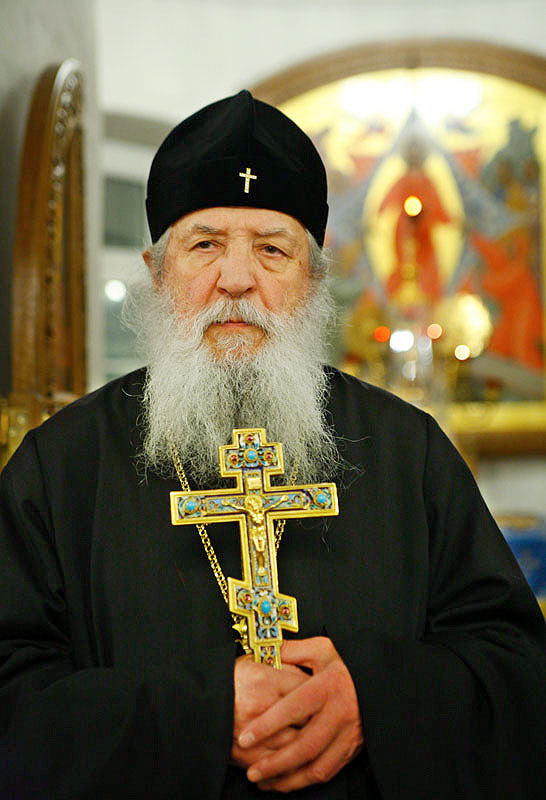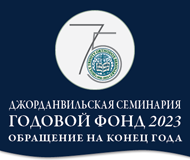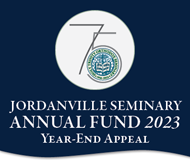News

The Fifth Anniversary of the Blessed Repose Of the Ever-Memorable Metropolitan Laurus, Fifth First Hierarch of the Russian Church Abroad
01:10 PM
Saturday, 2/16 March, the day when the Holy Church commemorates all the saints who shone forth in asceticism, will mark the fifth year since His Eminence, Vladyka Laurus departed from us, taking “the path that all the world must take.”
We will permit ourselves to recount in brief several instructive events from his biography, where all is now presented as full of particular significance, but which, in the days when the meek archpastor was among us, in themselves appeared as almost ordinary to those who understood them.
He Eminence, Metropolitan Laurus (Vasily Shkurla before his monastic tonsure) was born on January 1st, 1928, in Ladomirova, in the Preshov region (now part of Slovakia). This area formed the western border of what had once been Ugorskaya Rus’, and which prior to the Great War had formed part of the Austro-Hungarian Empire.
Vladyka was a scion of that heroic part of the Russian Orthodox people who dwelt in the Carpathian Mountains—the ancient homeland of the Slavs, which, despite the many centuries of the heavy yoke of unbelievable oppression by non-Orthodox and non-Slavs, had kept firmly to its Holy Orthodox Faith, even under the union with Rome that had been violently imposed, and their own national Russian self-awareness.
The infant Basil’s baptism was performed by the eminent missionary, Archimandrite Vitaly (Maximenko), later a prominent bishop of our Russian Church Abroad. There, in Ladomirova, was the Monastery of St. Job of Pochaerv, which had been founded by the future Vladyka Vitaly “the Elder”. Under the shelter of this monastery, and under the spiritual guidance of Vladyka Vitaly, the future First Hierarch passed his childhood, of which he himself was later to say: “From the years of my childhood, the Lord led me to the Monastery of St. Job of Pochaev in the Carpathians. There, in the monastery, I received my primary spiritual upbringing.”
The ever-memorable Seraphim (Ivanov), Archbishop of Chicago & Detroit (+1987), writes in his memoirs:
“Vasya grew up before my eyes. At age 5-6 he was already serving as an altarboy on feast days in our church. I remember how at age 8-9 he came to me (I was by that time was already the abbot of the monastery) and asked to be received as a novice. I smiled, patted his head and said that it was good that he had desired, from early chldhood, to dedicate himself to the service of God, but that the consent of his father was necessary.
“The next Sunday, Vasya came with his father, who quite readily agreed to give his son over to be brought up at the monastery, the moreso because he was very poor and had three other children.”
The education of Vasya, like that of the other youths then living in the monastery, was guided by Fr. Cyprian (Pyzhov), the famous iconographer of the Russian Diaspora.
Vasya was twelve years old when he was introduced to His Beatitude, Metropolitan Anastasy (Gribanovsky +1965), First Hierarch of the Russian Church Abroad. Vasya’s spiritual father, Fr. Cyprian, brought him up to the metropolitan to receive his blessing, and Vladyka Anastasy said prophetically: “God bless you. You will be a pastor.”
In 1946, Vasily Shkurla, who had become a monastery laborer, arrived at Holy Trinity Monastery in Jordanville from post-War Europe.
During those difficult times, Vasily had at his side two reliable spiritual guides: Archimandrite Cyprian (Pyzhov) and Archbishop Vitaly (Maximenko). Vladyka Vitaly presented him with his own portrait, which he inscribed prophetically: “To my spiritual son from the baptismal font, who will carry on my ministry to the Orthodox Church and the Russian people. 20 December 1946.”
In 1948, at Holy Trinity Monastery, Vladyka Vitaly tonsured the young novice to the riassa. At the tonsure, Vladyka Vitaly gave him the name Laurus; he later ordained him a hierodeacon (14 January 1950) and a hieromonk (27 June 1954). In general, the influence of Vladyka Vitaly upon Fr. Laurus was constant and beneficial. “Under his guidance, my spiritual upbringing and education took place. I thank God that He placed me in obedience to such a great ascetic and champion of Orthodoxy as the ever-memorable Archbishop Vitaly,” remembered Vladyka Laurus.
It is understood that Holy Trinity Monastery itself exercised an inestimable influence on Vladyka Laurus: “I grew to maturity, one may say, in that monastery.”, Vladyka Laurus was to say. Both monasteries—that of St. Job in Ladomirova, and Holy Trinity Monastery in Jordanville—fused, as it were, in his mind, and the latter became the direct heir of the former.
In 1954, the future Vladyka successfully completed Holy Trinity Seminary. Prominent among the other seminarians because of his personally abilities, even before completing the full course of study (at that time the course of study lasted six years) he undertook the teaching of several general educational subjects in the lower grades, and after graduation became instructor of Old Testament and Patrology, which he taught until the final years of his life.
Thus, over nearly thirty years, beginning from the age of twelve, the servant of God Vasily passed through all the stages of monastic growth—from simple novice of the Monastery of St. Job of Pochaev in the Carpathians, to the rank of archimandrite of Holy Trinity Monastery in Jordanville.
Those who knew him from those early, childhood years noted in him something rare—in him the proximity between spiritual growth and high ecclesial administration effected no perceptible change in the monastic qualities established in him from an early age. In the rank of archimandrite he was the same as he had been in the rank of hierodeacon—always ready to be or service to everyone, prepared to undertake any obedience. When he was already prefect of the Seminary and was delivering lectures on one of the most serious of subjects, he, if the matter required it, would dig a grave in the monastery’s vast cemetery, and in the order of monastic obediences he worked as cook in the kitchen and labored in the cow-barn. All the correspondence in the monastery office was placed on his shoulders; he himself conducted, if circumstances required it, the packing of the monastery’s publications for mailing to those who ordered them. There was no task that he considered beneath his rank or position.
On Saturday, August 12, 1967, in accordance with the directive of the Synod of Bishops of the Russian Church Abroad, the nomination of Archimandrite Laurus as Bishop of Manhattan took place. We will cite passages from his words at the nomination: “During this present, sacred moments, so terrifying to me, when, by the will of god, you, holy Masters, and the Sacred Council of the Russian Church Abroad are calling me, the unworthy, to the hierarchal ministry, what can I, a great sinner, say? Fear and trembling are come upon me.” In his concluding words, the nominee humbly asks: “Divinely wise archpastors! Pray that the Lord help me to be a steadfast, incorruptible preserver of the life-bearing commandments and the Traditions of the Orthodox Church, not only in word, but, most importantly, in deed. I beseech you never to cease strengthening me, who am inexperienced, by your edification.”
The love and gratitude of the flock followed Vladyka Laurus wherever he conducted his often difficult ministry.
After the death of Vladyka Averky (Taushev), the brethren of the monastery unanimously chose Vladyka Laurus as their abbot. It was not easy for the clergy and parishioners of the Synodal Cathedral in New York to part with their bishop. Yet it was also difficult for Holy Trinity Monastery to imagine itself without Vladyka Laurus. When, in the 1990s, he was visited with a grievous illness, prayers were offered up for him not only in the monastery, but all throughout the Russian Orthodox Diaspora. Countless expressions of sympathy were sent from all the ends of the Russian dispersion.
In June of 2001, Archbishop Laurus was appointed by the Synod of Bishops to be Deputy to the First Hierarch of the Russian Church Abroad, who had gone into retirement. And later, in accordance with the resolution of the Council of Bishops of 2001, Archbishop Laurus of Syracuse & Trinity was elected First Hierarch of the Russian Church Abroad.
“It is providential that the repose of His Eminence, Metropolitan Laurus, coincided with the days on which the Church celebrated the ‘Reigning’ Icon of the Mother of God (15 March) and the Triumph of Orthodoxy (3/16 March 2008). One may say that these two feasts outline the life of Vladyka and his primatial activity,” the reader Tikhon Thompson wrote in his comments.
We recall that in 2008, the feast of the “Reigning” Icon (the last day of Metropolitan Laurus’s earthly life) fell on the Saturday before the Triumph of Orthodoxy. On the Sunday of Orthodoxy the Church celebrates the triumph of unity, righteousness and peace. The life and ministry of Metropolitan Laurus took place in an era when our Church was undergoing a period of division, turmoil and troubles. We believe that, by his supplications, the Lord crowned this period with a great triumph of Church unity.
Eternal memory!






